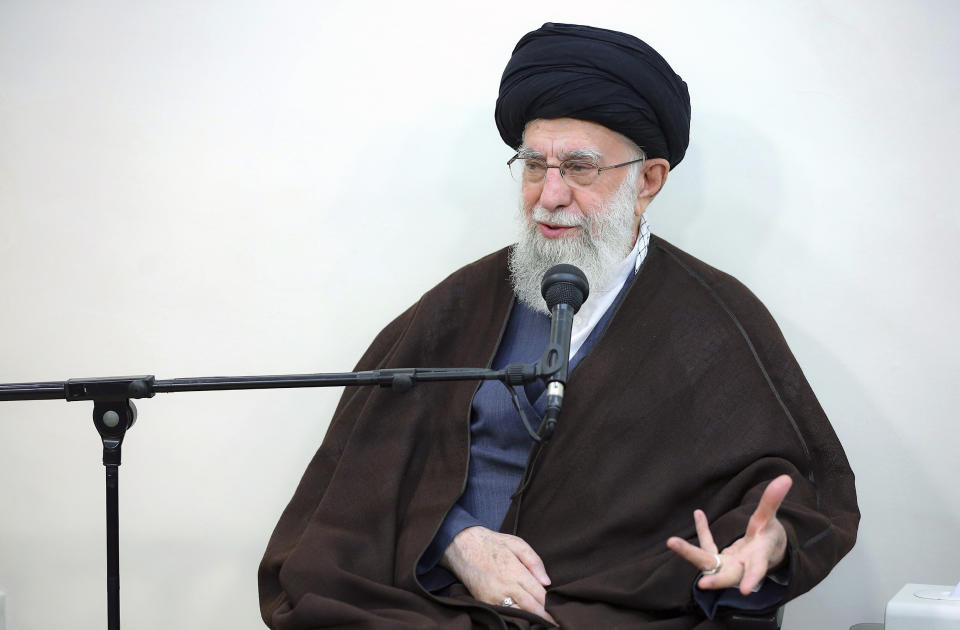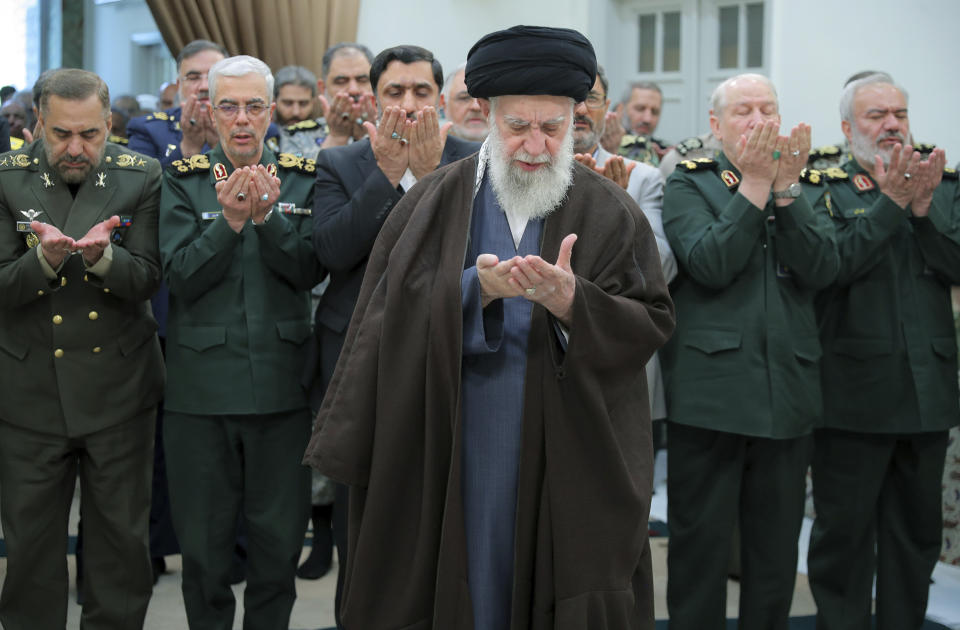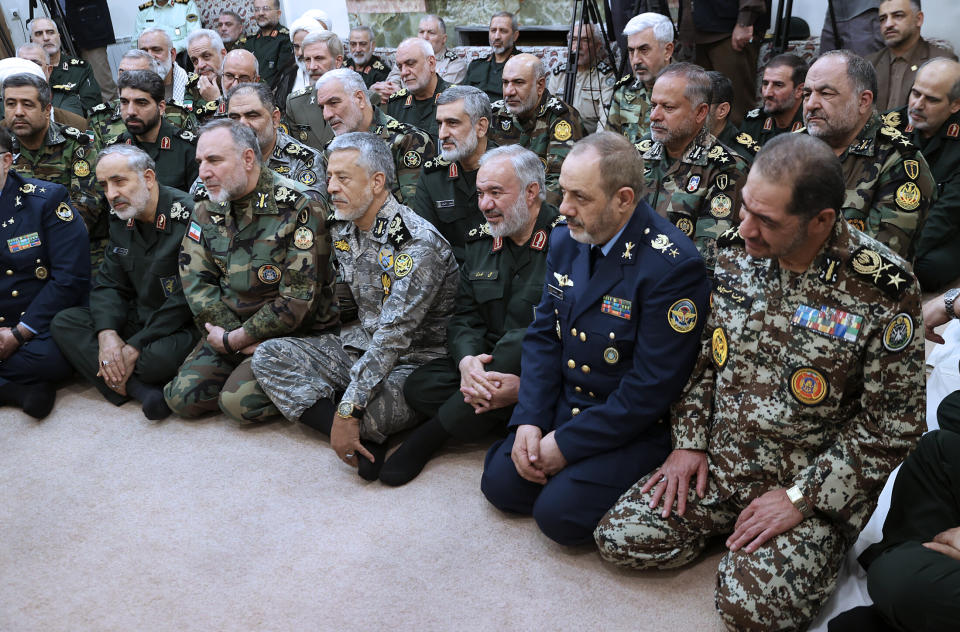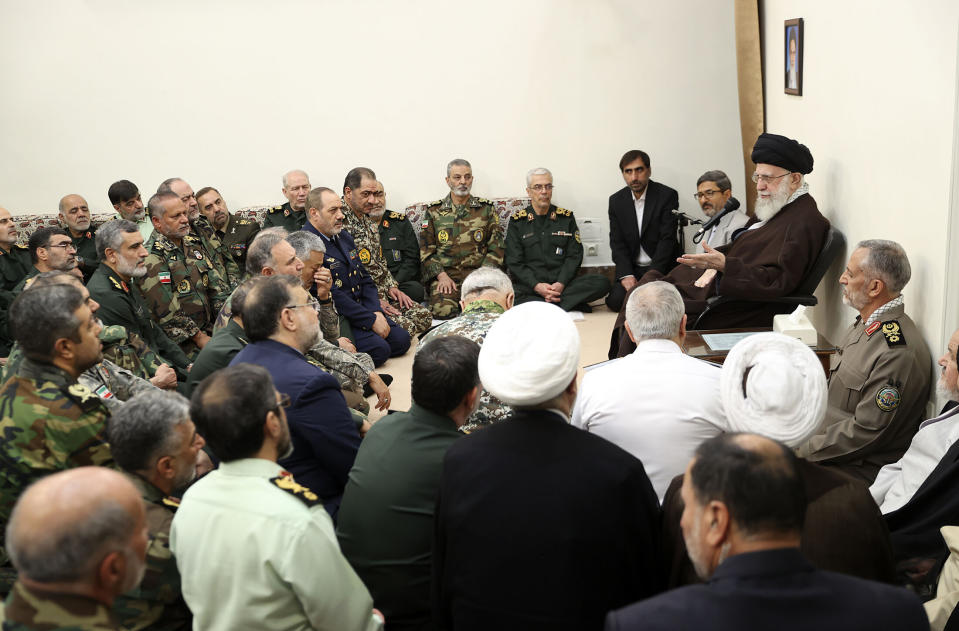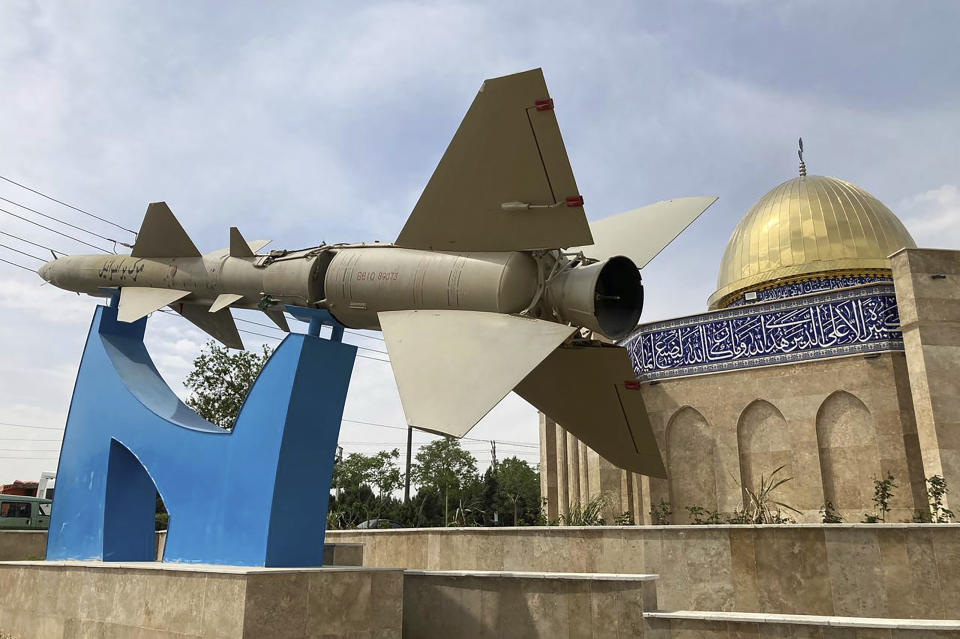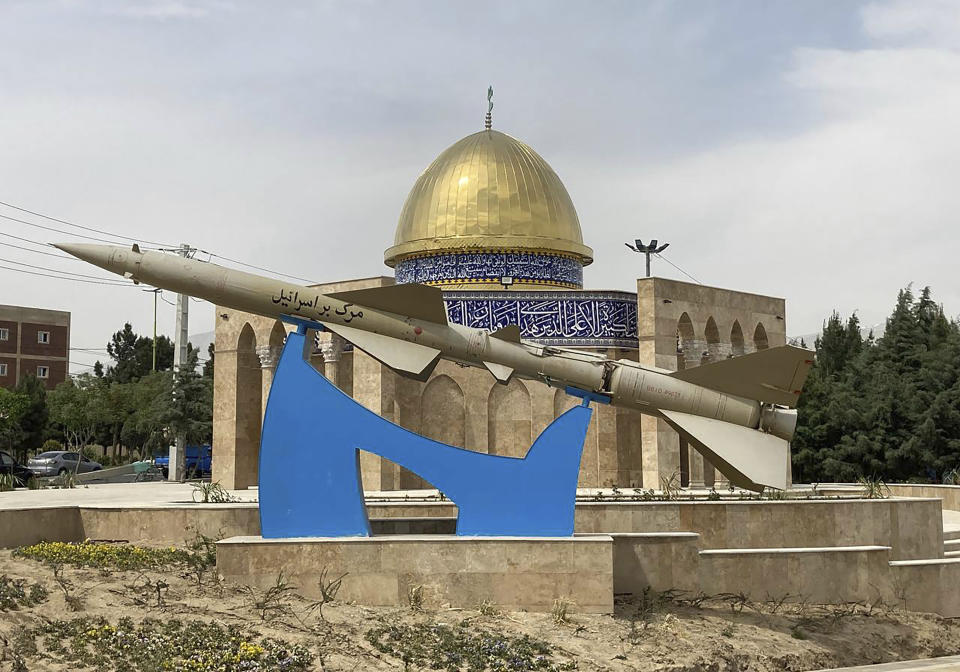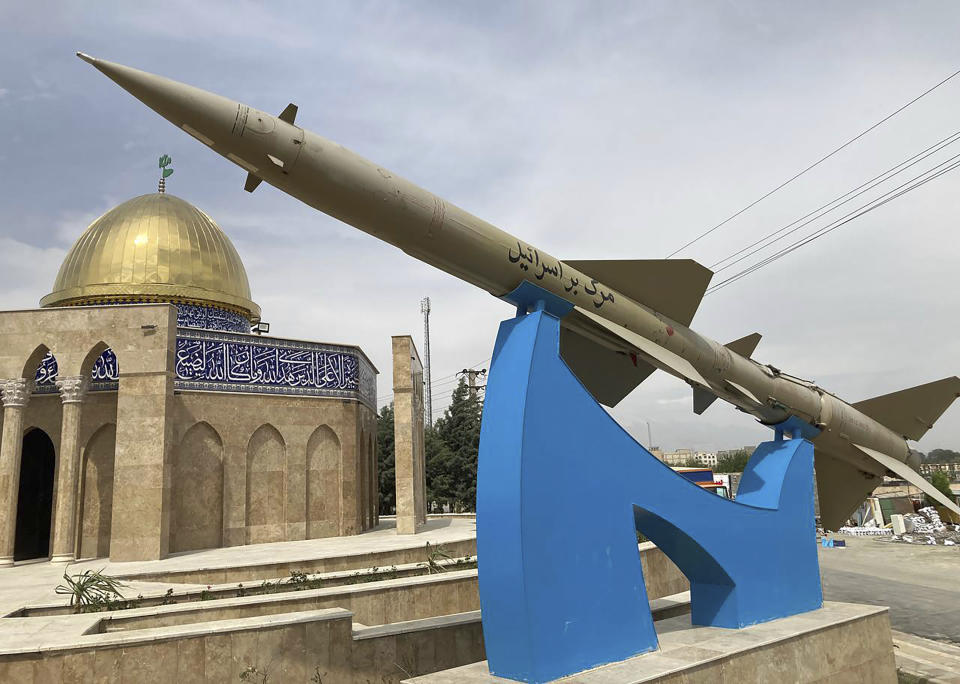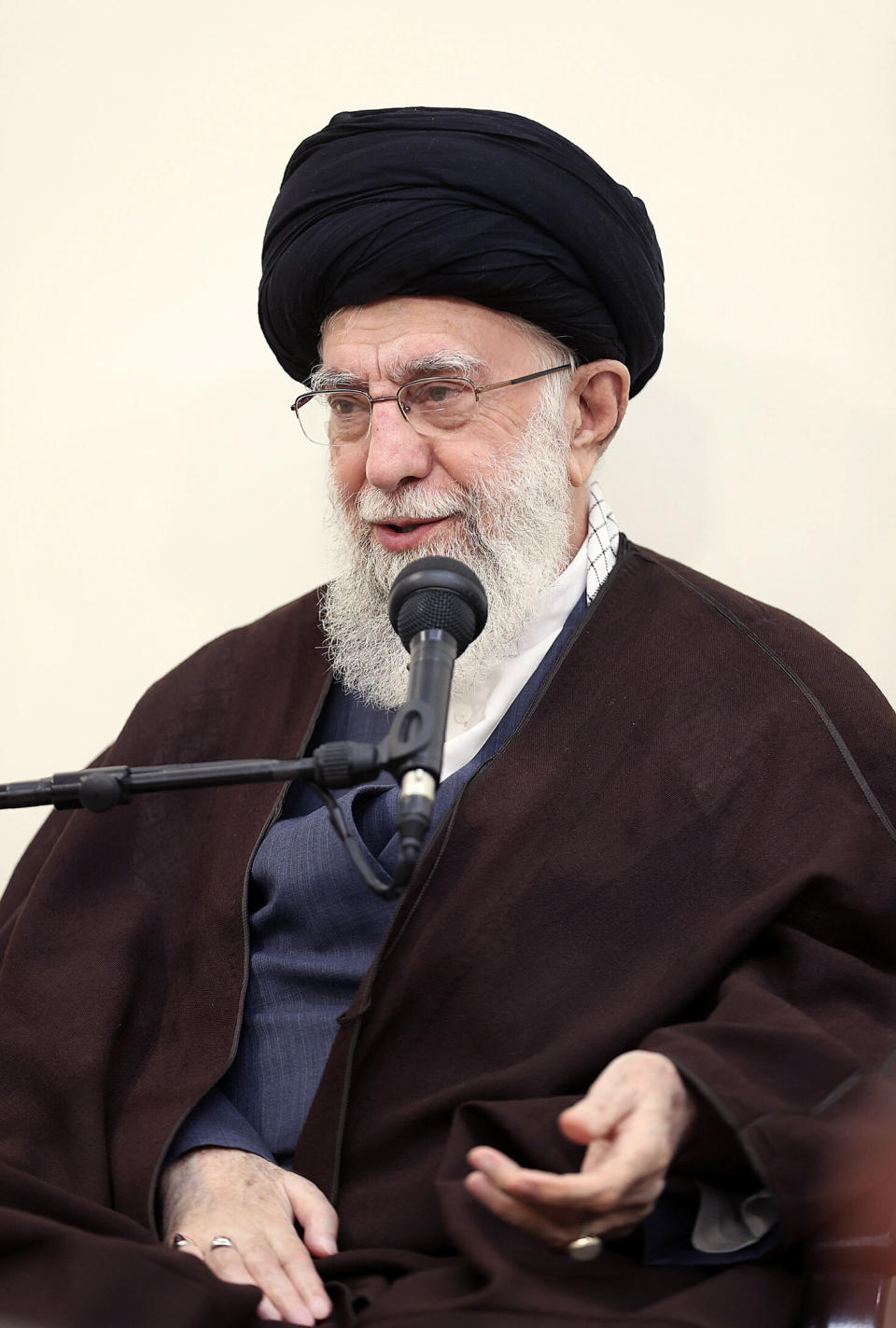Iran's supreme leader tacitly acknowledges that Tehran hit little in its attack on Israel
- Oops!Something went wrong.Please try again later.
JERUSALEM (AP) — Iran's supreme leader on Sunday dismissed any discussion of whether Tehran's unprecedented drone-and-missile attack on Israel hit anything there, a tacit acknowledgment that despite launching a major assault, few projectiles actually made it through to their targets.
Ayatollah Ali Khamenei's comments before senior military leaders didn't touch on the apparent Israeli retaliatory strike on Friday on the central city of Isfahan, even though air defenses opened fire and Iran grounded commercial flights across much of the country.
Analysts believe both Iran and Israel, regional archrivals locked in a shadow war for years, are trying to dial back tensions following a series of escalatory attacks between them as the Israel-Hamas war in the Gaza Strip rages on and inflames the wider region.
Khamenei, 85, made the comments in a meeting attended by the top ranks of Iran's regular military, police and paramilitary Revolutionary Guard, a powerful force within its Shiite theocracy.
“Debates by the other party about how many missiles were fired, how many of them hit the target and how many didn’t, these are of secondary importance," Khamenei said in remarks aired by state television.
“The main issue is the emergence of the Iranian nation and Iranian military’s will in an important international arena. This is what matters.”
Iran launched hundreds of drones, ballistic missiles and cruise missiles that sought to overwhelm Israel's air defenses in the April 13 attack — the first on Israel by a foreign power since Iraqi dictator Saddam Hussein launched Scud missiles at Israel in the 1991 Gulf War.
However, Israeli air defenses and fighter jets, backed by the U.S., the United Kingdom and neighboring Jordan, shot down the vast majority of the incoming fire.
Satellite images analyzed Saturday by The Associated Press showed the Iranian attack caused only minor damage at the Nevatim air base in southern Israel, including taking a chunk out of a taxiway that Israel quickly repaired.
Iran's attack came in response to a suspected Israeli strike on April 1 targeting a consular building next to the Iranian Embassy in Damascus, Syria, which killed two Guard generals and others.
“Today, thanks to the work done by our armed forces, the Revolutionary Guard, the army, the police, each in its own way, praise be to Allah the image of the country around the world has become commendable," added Khamenei, despite Iran facing public anger over its economy and crackdowns on dissent.
In other developments, Iraqi security forces in the western Nineveh province area were searching for “outlaw elements” who fired missiles across the border into Syria late Sunday, targeting a base for U.S.-led coalition forces, Iraq's Security Media Cell said.
The searchers had found and destroyed a missile launcher, the statement added.
No group immediately claimed responsibility for the reported attack.
Maj. Gen. Tahseen al-Khafaji, head of the Security Media Cell, said about five missiles were launched across the border but it was unclear if they had hit or caused any damage at the targeted base.
U.S. officials did not comment on whether any U.S. facility had been specifically targeted. One official said a coalition fighter destroyed a launcher in self-defense after reports of a failed rocket attack near a coalition base at Rumalyn, Syria. No U.S. personnel were injured, according to the official, who spoke on condition of anonymity to provide details that were not yet public.
Two nights earlier, an explosion struck a base in Iraq belonging to the Popular Mobilization Forces, a coalition of Iran-allied militias, killing one person and injuring eight.
Militia officials initially described the explosion at the Kalsu military base north of Babylon as an airstrike that they blamed on U.S. forces. The U.S. Central Command denied it had carried out any airstrikes in Iraq, and Iraq’s Security Media Cell said the country’s air defense command had not detected any drones or war planes in near Babylon before or during the explosion.
The PMF is designated as an “independent military formation” within the Iraqi armed forces.
In recent months, some of the coalition's member groups have staged attacks on U.S. forces based in the region, which they said was in retaliation for Washington’s support of Israel in its war with Hamas in Gaza. Those attacks halted after three U.S. soldiers were killed in a strike on a base in Jordan, near the Syrian border in late January, prompting U.S. retaliatory strikes in Iraq.
___
Associated Press writer Tara Copp in Washington contributed to this report.
